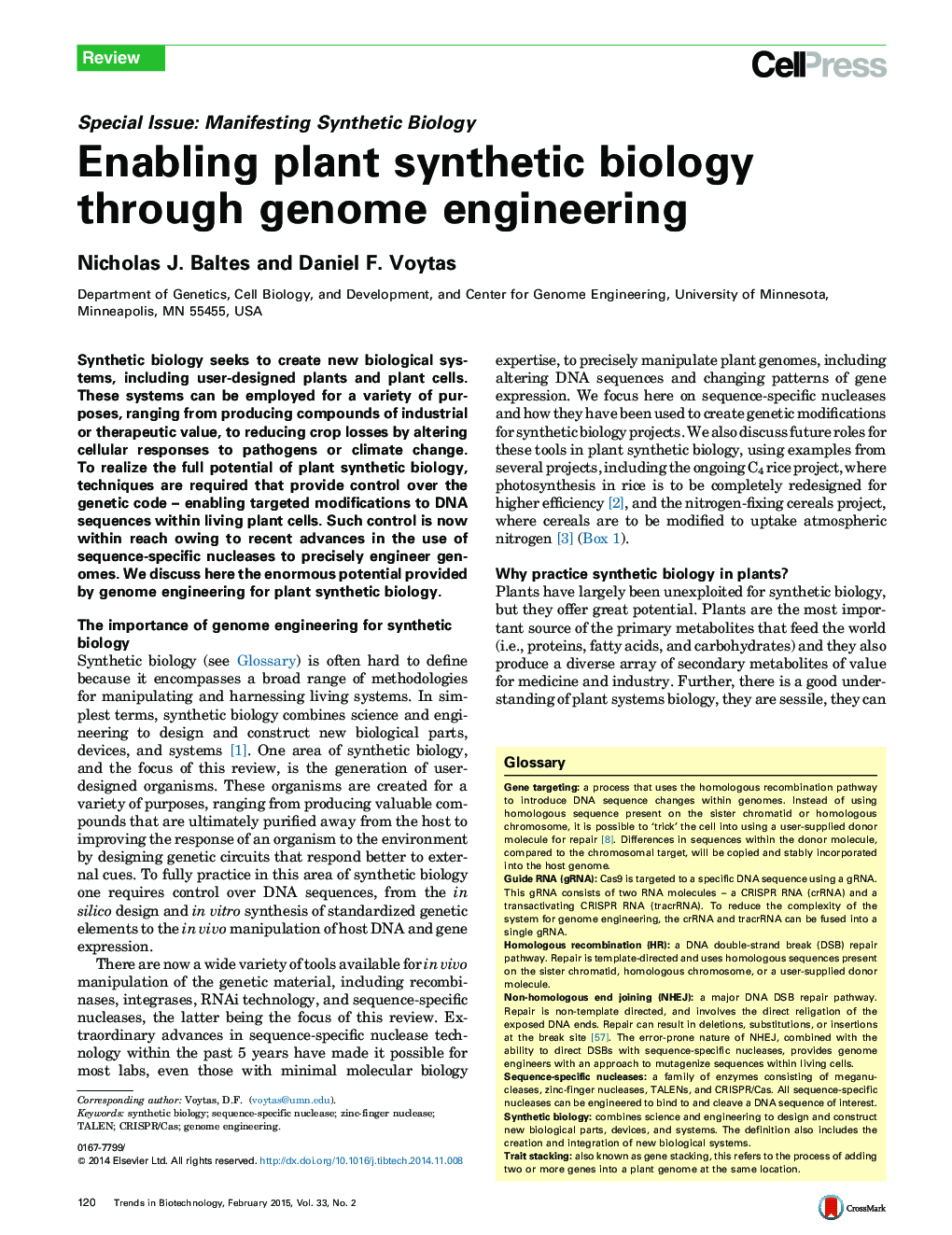| Article ID | Journal | Published Year | Pages | File Type |
|---|---|---|---|---|
| 36910 | Trends in Biotechnology | 2015 | 12 Pages |
•Rewriting genomes will play an important role in plant synthetic biology.•Sequence-specific nucleases enable almost any DNA sequence change in plant cells.•The advantages and limitations of current sequence-specific nucleases are discussed.•A comprehensive list of recent plant genome engineering achievements is provided.•Achievements in genome engineering are related to plant synthetic biology projects.
Synthetic biology seeks to create new biological systems, including user-designed plants and plant cells. These systems can be employed for a variety of purposes, ranging from producing compounds of industrial or therapeutic value, to reducing crop losses by altering cellular responses to pathogens or climate change. To realize the full potential of plant synthetic biology, techniques are required that provide control over the genetic code – enabling targeted modifications to DNA sequences within living plant cells. Such control is now within reach owing to recent advances in the use of sequence-specific nucleases to precisely engineer genomes. We discuss here the enormous potential provided by genome engineering for plant synthetic biology.
